Neem oil is a naturally occurring pesticide that is derived from neem trees. It is yellow to brown with a pungent garlic smell and bitter taste. Neem oil has fantastic benefits for plants and humans. In plants, neem oil pesticides protect them from harmful pests (insects, fungi, and mites). In this article, I’ll share with you tips on how to use neem oil for plants.
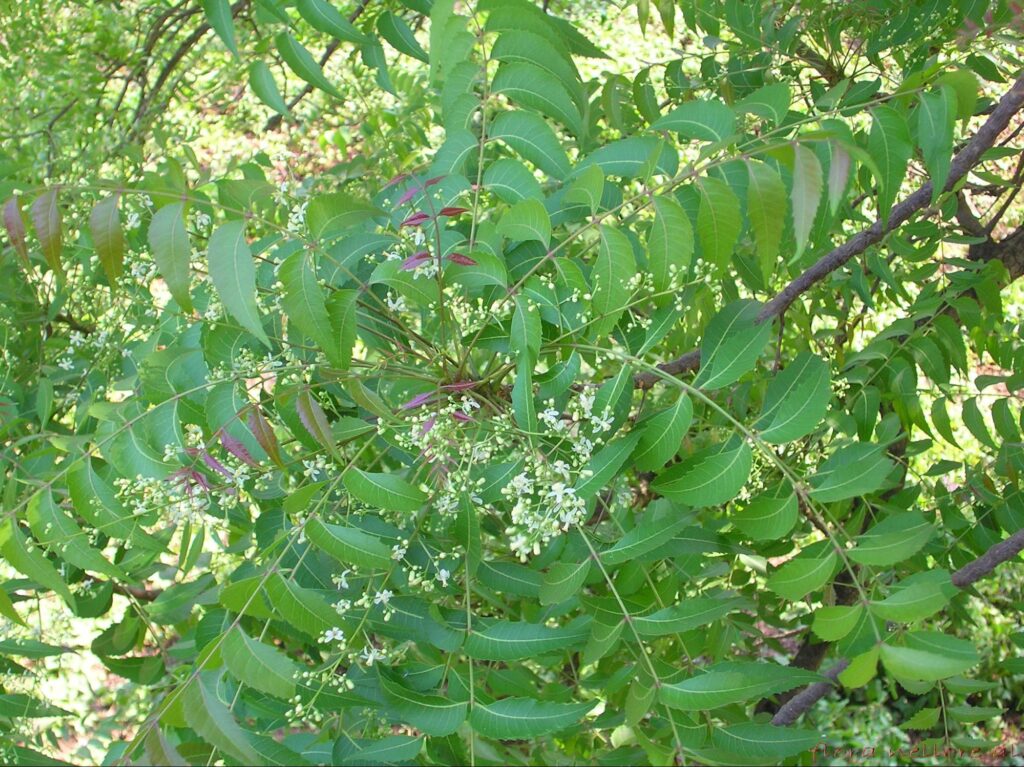
Neem oil—the source of neem oil that has incredible benefits
On the other hand, neem oil products in humans use for hair growth, treatments, and cosmetic products. Moreover, neem oil for plants and in cosmetic products proves satisfactory results.
Neem oil is effective in killing various pests, such as whiteflies, mealybugs, aphids, scale insects, spider mites, Japanese beetles, leafhoppers, fungus gnats, and thrips. In addition to that, neem oil kills fungal pathogens (powdery mildew).
Let’s learn more about neem oil and its applications in plants to treat outdoor pests.
What is Neem Oil?
Neem oil is a natural pesticide that comes from the seeds of the neem trees (Azadirachta indica). These neem trees are native to tropical regions (India, Burma, and Sri Lanka).
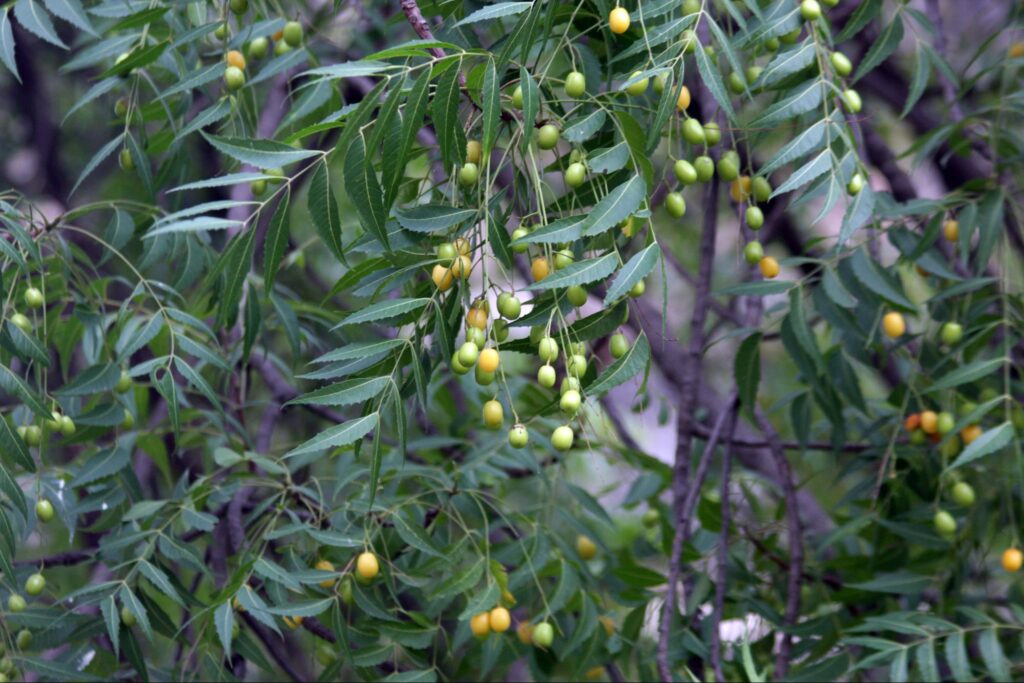
Neem tree with seeds that are the source of neem oil
It has greater use in plants as botanical insecticides and plays a crucial role in integrated pest management approaches. For centuries, neem oil products have been used in households due to their less toxic nature.
With growing interest in less toxic organic products, neem oil has become a staple. You’ll find the neem oil mixture from every gardener. Every plant owner reaches for it when they encounter their first pest problem. Then, they consider the neem oil—a solution for all plant miseries.
Neem oil contains two active ingredients—azadirachtin and clarified hydrophobic neem oil. Azadirachtin is derived from needed seeds and effectively repels and kills insects. At the same time, the purified hydrophobic oil disrupts insect hormones that regulate their growth and development.
Azadirachtin substance is available in commercial products aimed at killing and repelling insects. On the other hand, the clarified hydrophobic extract is the active ingredient in ready-to-use sprays to kill pests instantly.
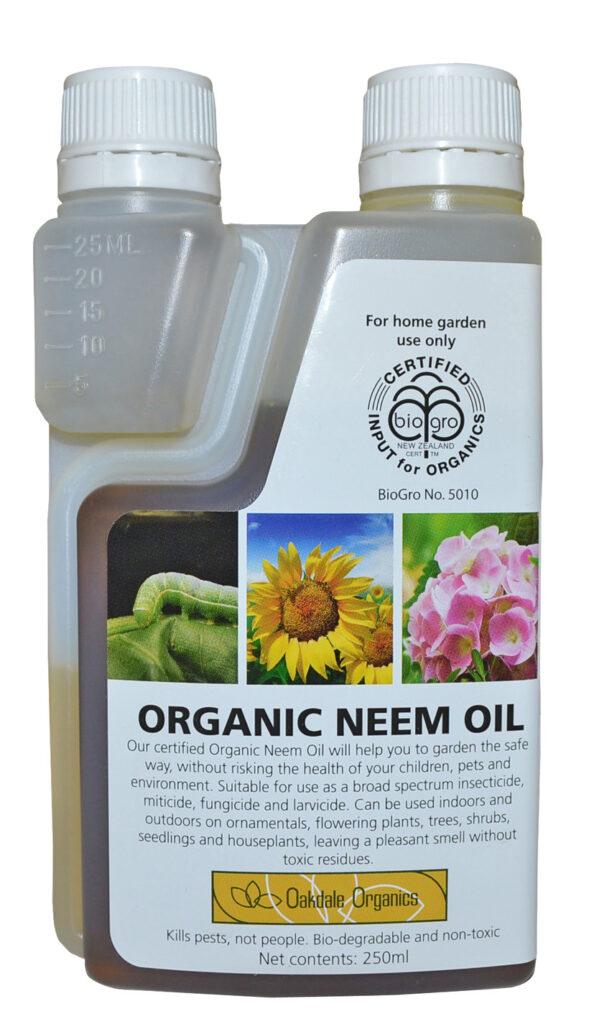
Organic neem oil for the killing of harmful plant pests
Neem oil mixture functions as
- Antifeedant
- Stop the molting process by interrupting with growth hormones
- Suffocates the insects by covering their bodies with oil and blocking the normal breathing process
RELATED: How to Treat Mealy Bugs on Plant With Organic and Inorganic Methods Effectively?
Can I Spray All my Plants with Neem Oil?
Neem oil products are beneficial for some crop plants (vegetables, herbs, and houseplants), and in others, their applications can burn the foliage. The best way to avoid leaf burning is to prevent applications on new transplants and stressed plants. Moreover, always perform a test before spraying.
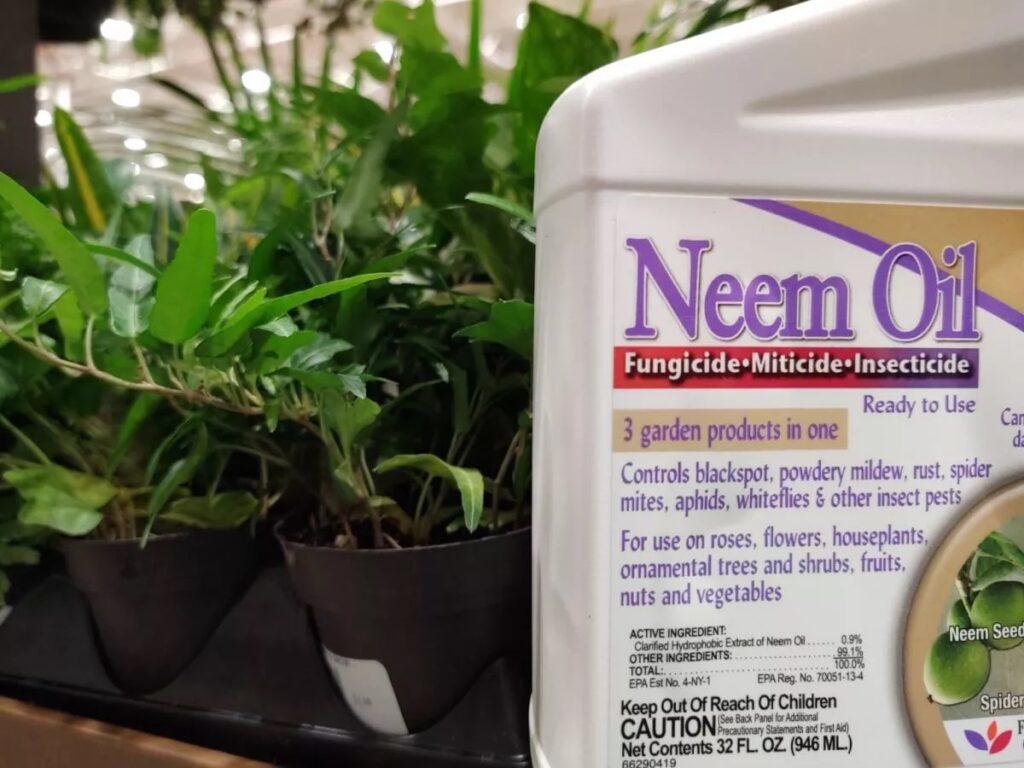
Organic neem oil insecticide, fungicide, and miticide
Neem oil spray is effective against various pests in the garden and indoor plants. It kills harmful sap-sucking insects (whiteflies, aphids, and mealybugs). As a result, it protects plants from their damage. Against insects, neem oil works as a growth disruptor. It causes hormonal imbalance and blocks the molting process.
Note: Apply neem oil insecticide in the early morning or evening to ensure it does not harm the beneficial insects. Also, carefully read the product label to check the list of insect pests mentioned on it.
Neem seed oil is also used to manage fungal diseases of garden vegetables such as powdery mildew. The applications of neem oil spray stop the germination of fungal spores and penetration into leaf tissue. However, it will not revive the already heavily infected plant, but neem oil can stop spreading to other plants.
Which Disease is Cured by Organic Neem Oil?
Neem oil cures powdery mildew disease in garden vegetables. It works as a natural pesticide and effectively kills the fungal spores. Thus, preventing the spore germination and penetration into host plants. Neem oil spray also protects against fungal diseases spread over healthy plants.
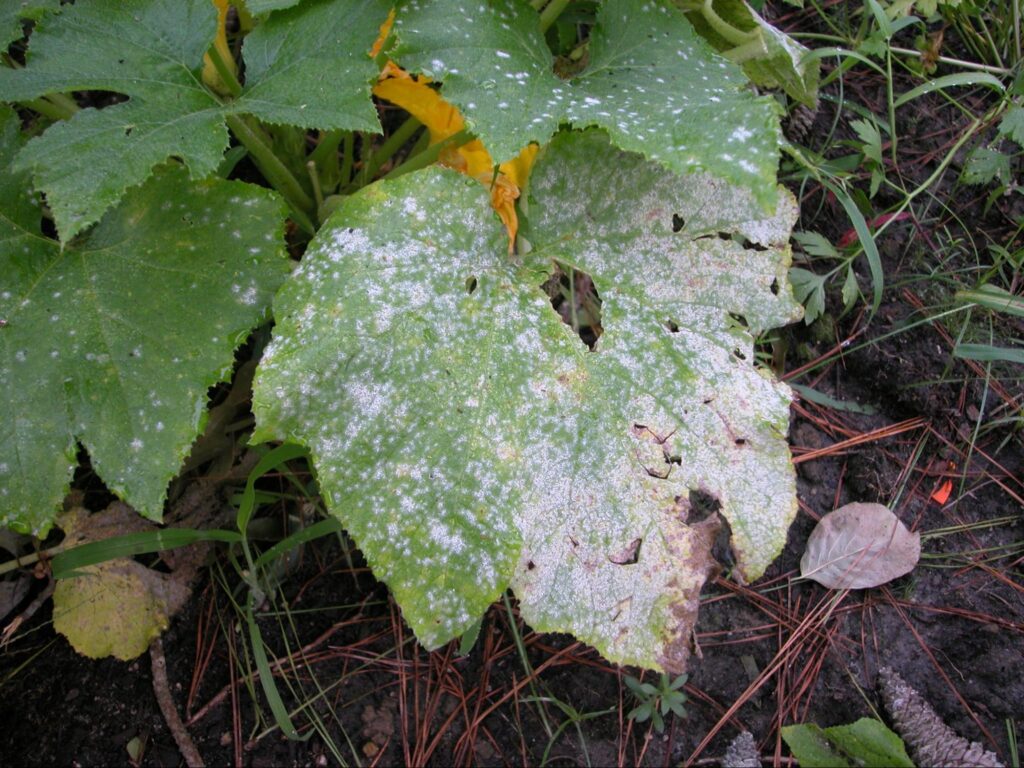
Powdery mildew disease on cucurbits and neem oil spray cures it
To prepare an effective neem oil spray:
- Take one gallon of water
- One tablespoon of concentrated neem oil insecticide
- Half a tablespoon of dish soap and essential oil, which is optional
Mix all the ingredients in a bowl and pour into a spray bottle. Spray on the entire plant showing the mild symptoms. Make sure the foliage is fully saturated for excellent treatment.
Note: Neem oil spray is equally beneficial for indoor and outdoor plants.
RELATED: An Introduction to Flea Beetle plus How to Get Rid of this Garden Pest?
Can You Water Plants After Applying Neem Oil?
Watering your plants before and after neem oil applications does not create much difference. However, a diluted neem oil drench for potting soil will help eliminate fungus gnats larvae and their eggs. While applying the neem oil dilution as a drench, make sure the top 1 to 2-inch soil layer is dry.
RELATED: Scale Insects: How to Identify and Manage Them for Plant Health?
How Do You Use Neem Oil on Plants?
To use neem oil for plants, purchase ready-to-use neem oil insecticide and prepare the spray by the following process.
Materials We Need
- Spray bottle
- Plastic bowl for mixing
- Cold-pressed neem oil
- Water
- Liquid dish soap
- Protective gloves and eyewear
Mix Water and Detergent
Mix one or two tablespoons of mild detergent per gallon of water in a large bowl and homogenize it thoroughly.
Note: The diluted liquid soap mixture also works as a homemade insecticide and can kill aphids and other sap-sucking outdoor pests.
Add Neem Oil to the Water and Detergent
Add one tablespoon of the neem oil to the water and detergent solution and slowly shake the mixture.
Spray the Neem Oil Mixture
Pour the mixture (water + detergent + neem oil) into a spray bottle and spray on plants and leaves (both upperside and underside) until entirely wet and dripping.
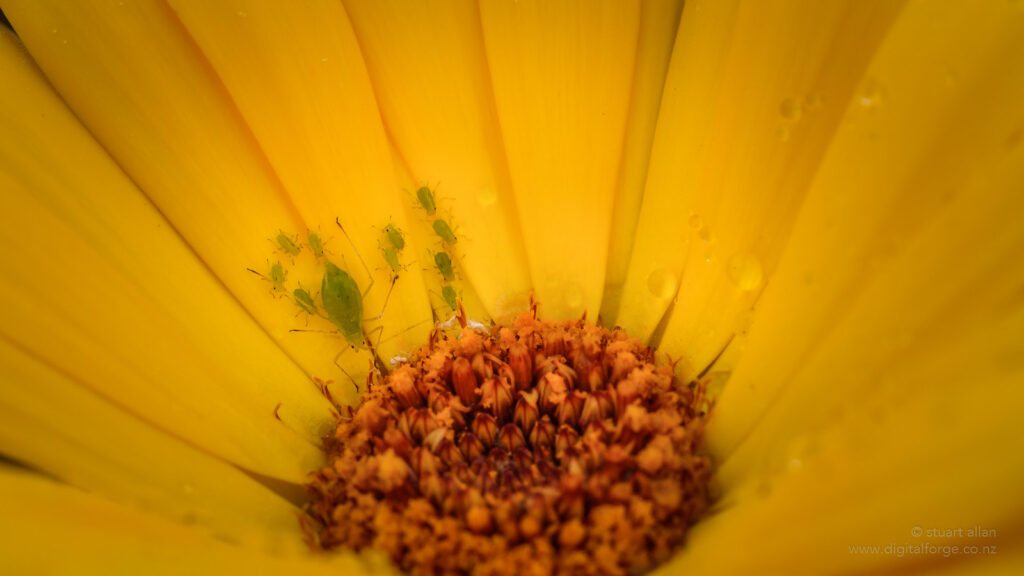
Aphids with their offspring on marigold—let’s kill them with neem oil
Apply neem oil on spider mites-infested tomato plants before these tiny pests eat your entire plant.
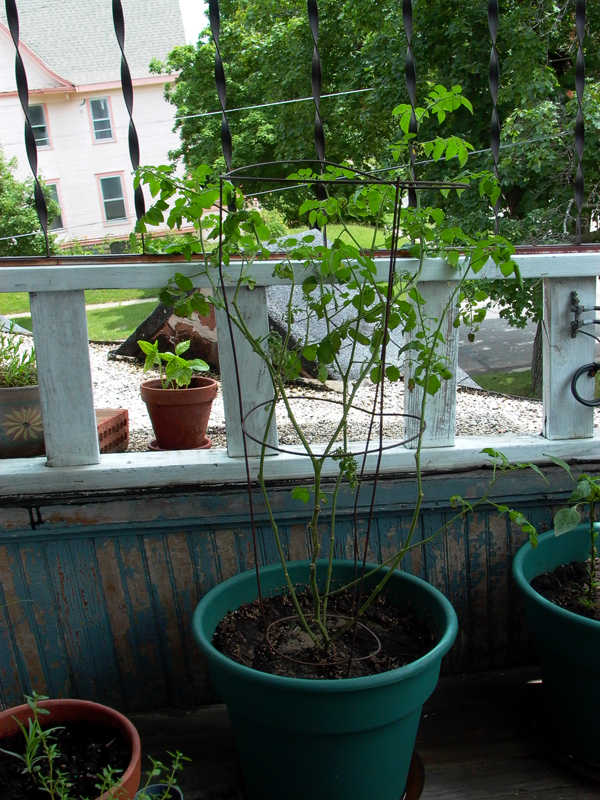
Spider mites infested tomato plant, apply neem oil before it kills your entire garden.
Hibiscus infested with mealybugs
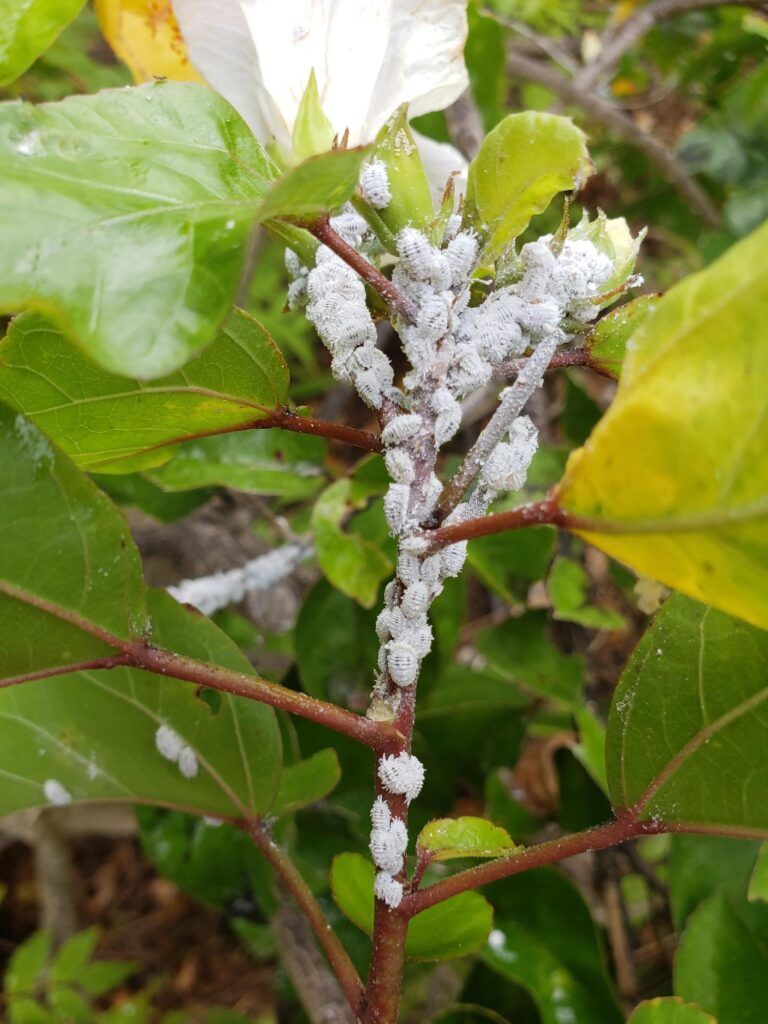
Use neem oil on hibiscus to kill mealybugs
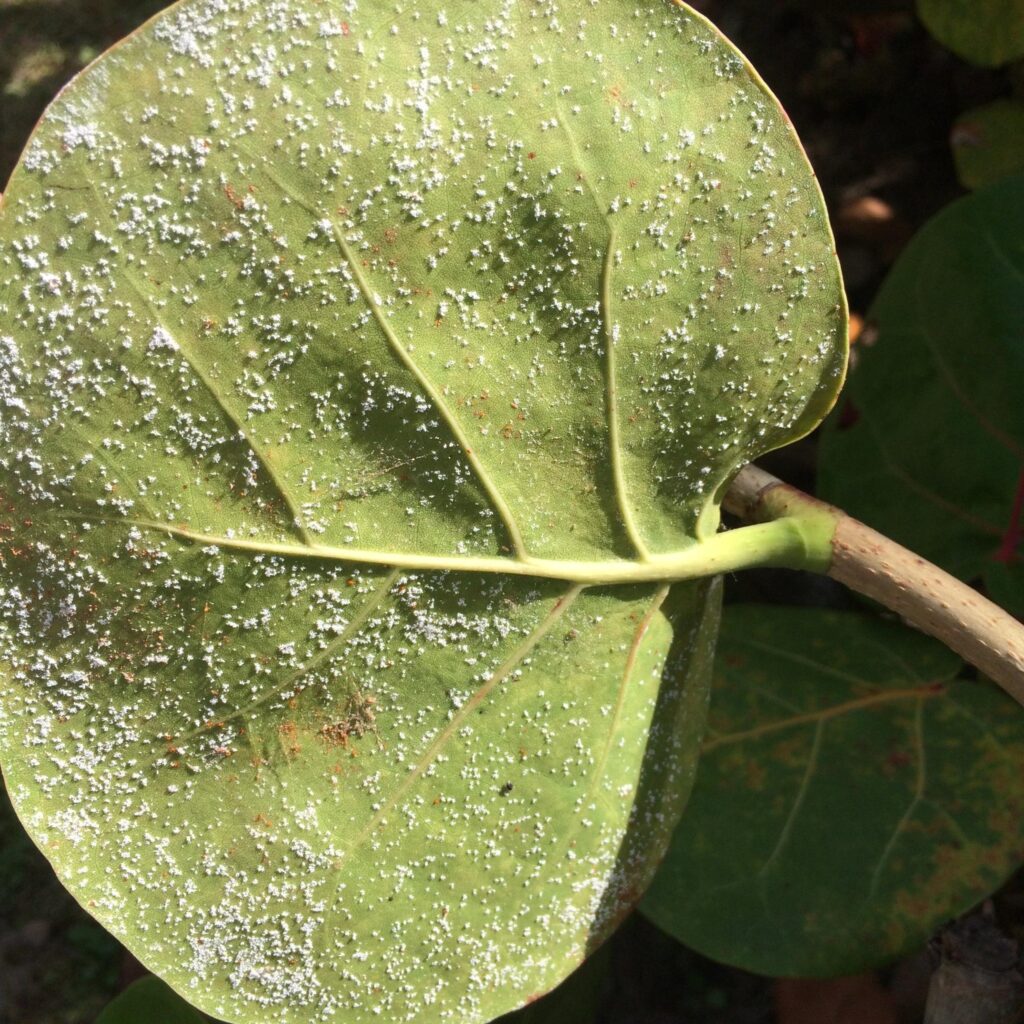
Heavily infested a plant leaf with whiteflies
Use neem oil to kill these tiny whiteflies and revive plant health.
Practical Tips to Use Neem Oil on Indoor Plants
- Do not spray neem oil on young seedlings because it will burn them.
- Avoid applications of neem oil on transplants.
- Avoid the too many applications of neem oil or concentrations in your spraying mixture; otherwise, it will harm the beneficial insects and foliage.
- Do not expose the plants to sunlight after neem oil application; it will completely burn them.
- Neem oil works wonders on trees, ornamental plants, and indoor plants to kill fungal pathogens.
- Neem oil application on Colorado blue spruce trees prevents them from aphids and root gall nematodes.
- Spider mites can eat your Blue Star Juniper. So, use neem oil to kill the pest infestations before the plant surrenders to feeding damage.
Mode of Application of Neem Oil on Indoor and Outdoor Plants
In this section, we’ll shed light on how we can use neem oil on our plants?
The following are the mode of applications of neem oil and are the most common ones.
- Add neem oil into a spray bottle and mist on your entire plant covering the upper side and underside of leaves.
- Add neem oil to a bowl full of water and apply it to potting soil as a drench to kill soil-dwelling larvae.
- Dip a cotton swab in a neem oil and water solution to remove pests and significantly scale insects.
Frequently Asked Questions
Is Neem Oil Harmful to Humans?
Neem oil is safe for most people, but the environmental protection agency considers it less toxic. In addition, Neem oil can cause allergic reactions in humans and pets, such as contact dermatitis.
What is the Ratio of Neem Oil to Water?
The ratio of neem oil to water is as:
- Mix 1½ tablespoon of neem oil per quart of water or one part of neem seed oil per four parts of water
- Mix one or two tablespoons of neem oil per gallon of water
The neem oil is applied as a foliar spray to eliminate outdoor pests attaching the underside of leaves and soil drench to kill gnat eggs and larvae.
Does Neem Oil Help Plants Grow?
Yes, neem oil helps plants to grow by eliminating harmful pests. It eliminates insects, but neem oil also kills fungal diseases and mites. The use of neem oil is effective against all stages within the life cycle of insects. For example, it kills beetle larvae, caterpillars, and lace bugs.
Neem oil also prevents the spread of disease over other healthy plants. Thus, neem oil has tremendous benefits for plant growth and development.
How Do You Use Neem Oil as Insect Repellent?
Mix two tablespoons of neem oil, mild dish soap, and water to prepare a neem oil insect repellent. Mix all the ingredients and spread over plant leaves and at the base.
Apply the mixture regularly in the morning or in the evening to repel insects. The sharp smell of neem oil keeps the pests away from plants.
Can You Use Neem Oil on Lettuce?
Yes, neem oil is safe to use on edible vegetables such as lettuce, cabbage, broccoli, cauliflower, etc. It is effective throughout the growing season and prevents garden vegetables from powdery mildew, mites, leaf miners, lace bugs, and wireworms.
How Long Does Neem Oil Last on Plants?
The shelf life of neem oil is only 45 minutes when applied as a foliar spray and 3 to 22 days when applied as a soil drench. So, as a foliar spray, the plant needs frequent applications of neem oil rather than soil drench.
Sources for Further Reading
- E. (2020, January 22). What should neem be used for on plants? University of New Hampshire Extension. Retrieved May 4, 2022, from https://extension.unh.edu/blog/2020/01/what-should-neem-be-used-plants
- Campos, E. V., De Oliveira, J. L., Pascoli, M., De Lima, R., & Fraceto, L. F. (2016). Neem oil and crop protection: from now to the future. Frontiers in plant science, 7, 1494. https://www.frontiersin.org/articles/10.3389/fpls.2016.01494/full
- Borden, M. A., Buss, E. A., Brown, S. G. P., & Dale, A. G. (2018). Natural products for managing landscape and garden pests in Florida. Edis, 5, 1-13. https://edis.ifas.ufl.edu/publication/IN197
Now that you know how to use neem oil for plants make sure to check out our other articles:
Effective Ways To Get Rid Of Russet Mites On Houseplants
Springtails on Houseplants & Effective Ways to Get Rid of Them?
How to Kill Whiteflies on Houseplants? Plus Organic & Inorganic Methods







